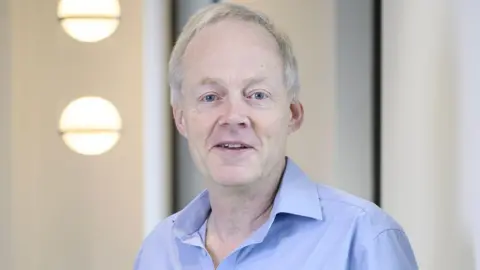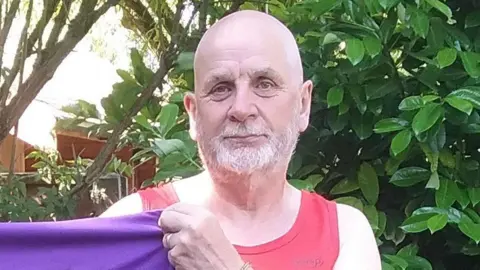Study shows specialised care delays stroke symptoms
 Cambridge University Hospitals NHS Foundation Trust
Cambridge University Hospitals NHS Foundation TrustA rare condition which can cause early-onset strokes can be delayed by up to five years following specialist care, a study has found.
The national Cerebral Autosomal Dominant Arteriopathy with Subcortical Infarcts and Leukoencephalopathy (CADASIL) clinic, based at Addenbrooke's Hospital in Cambridge, supports people suspected to have the condition and their families.
The genetic condition affects small blood vessels throughout the body, increasing the risk of bleeds, including bleeds in the brain, leading to a stroke.
Prof Hugh Markus, consultant neurologist, said: "It means a lot to see that the work we are doing to improve awareness and diagnosis appears to be having a positive impact.
CADASIL can cause early-onset strokes and increased risk of dementia.
It can often affect multiple members of the same family with a 50% chance of it being passed on to children.
People with CADASIL may experience multiple strokes which can start between the ages of 30 to 60 and can go on to experience migraines and dementia.
Many people affected by the condition are supported by the specialist clinic in Cambridge.
Led by Prof Markus, a study looked at 555 people who had been referred to the clinic between 2001 and 2023 where awareness and understanding of the condition and specialist care has improved.
The study found patients referred to the clinic before 2016 experienced their first stroke between the ages of 37 and 56 whereas those referred after that time typically did not start getting strokes until almost five years later between the ages of 42 and 61.
 Glenn Bate
Glenn BateGlenn Bate from near Diss, Norfolk, is a patient of the clinic and was diagnosed with CADASIL following a stroke in 2015.
The 69-year-old, who is also a trustee at CADASIL Support UK, said having a stroke "changed everything".
"When I first left hospital I had problems with walking, balance and anxiety, it felt like I was going home to die," he said.
"Having a stroke changed everything in my life - I had to relearn everything. I couldn't drive, and I felt like my life was over."
He said attending the clinic had also supported him with his mental health.
"When you're diagnosed, the possibility of having more strokes can be really scary," he said.
"It's fantastic to know that people like me are now living longer without experiencing strokes.
"It means we're not just living longer but getting a better quality of life."
Follow Cambridgeshire news on BBC Sounds, Facebook, Instagram and X.
